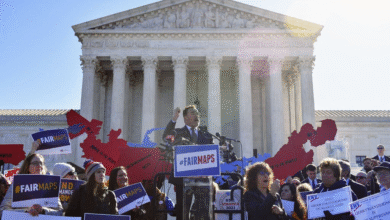Musk DOGE Government Data Certification Urged by Senator

In a bold move that raises eyebrows, Senator Jeanne Shaheen has recently called on President Trump to address concerns surrounding Elon Musk and his controversial DOGE project, particularly regarding government data misuse. Shaheen’s appeal highlights the growing apprehension that Musk and his team may leverage sensitive government data to benefit personal or corporate interests, a situation that could compromise the integrity of public information. With Musk already wielding significant influence through companies like Tesla and SpaceX, the stakes are high as she emphasizes the need for accountability among those with access to such valuable information. As critiques mount about the financial implications of Musk’s initiatives, scrutiny into his operational ethics, especially regarding the handling of government data, becomes increasingly essential. This underscores a pressing need for policies ensuring that innovators like Musk cannot exploit governmental resources at the taxpayer’s expense, particularly with the potential impact on broader fiscal policies.
In the complex landscape of government oversight, the recent concerns involving billionaire entrepreneur Elon Musk and his DOGE initiative have emerged as a focal point for ethical discourse. The call for heightened accountability comes from Senator Jeanne Shaheen, who seeks assurance that Musk’s operations will not engage in the inappropriate use of confidential government information. This issue resonates with broader discussions around the responsibilities of influential figures in the private sector, as the potential for conflicts of interest raises alarms about the misuse of classified data. Additionally, with the previous administration’s policies often criticized for inadequacies, there is a renewed urgency to ensure that individuals with substantial access to government resources maintain strict ethical boundaries. As scrutiny grows over Musk’s DOGE project and its financial implications, the conversation surrounding its governance continues to challenge the integrity of both public and private sectors.
Elon Musk’s Influence on Government Data Policies
Elon Musk, known for his ventures in electric vehicles and space exploration, has undeniably carved a niche within both the private sector and government frameworks. His role in projects like DOGE has raised questions about how private enterprises, especially those run by high-profile individuals, engage with government data. As Senator Jeanne Shaheen brought to light, with the access Musk and his team possess, there exists a real concern regarding the misuse of sensitive government data. Lawmakers are increasingly focusing on establishing stricter guidelines and certifications that would ensure individuals like Musk adhere to ethical standards in data usage.
The intersection of technology and government is becoming more complex, particularly when powerful figures like Musk are involved. The Tesla and SpaceX founder’s access to government datasets could potentially lead to conflicts of interest. Such instances are why Senator Shaheen, along with contributors like Steve Bannon, urges the Trump administration to implement a formal certification to prevent any unauthorized personal gain from government data. As government data misuse becomes more scrutinized, it’s essential for influential leaders to operate transparently and responsibly.
Concerns Over DOGE Project’s Financial Integrity
The DOGE project championed by Elon Musk has indeed gained traction among many investors and tech enthusiasts; however, its financial underpinnings have recently come under review. Initially, Musk claimed it could save taxpayers a staggering $2 trillion, a promise that has since seen significant revision. As the Trump administration faces scrutiny over budget allocations, the revised estimate of $1 trillion raises eyebrows and prompts questions about the overall effectiveness and sustainability of the DOGE initiative. The juxtaposition of lofty aspirations against budget realities illustrates the need for thoughtful financial strategy.
Reports on the financial implications of Musk’s DOGE project reflect a divergence between perceived benefits and actual outcomes. Critics argue that despite the initial goals, the project could lead to unanticipated costs for taxpayers, contradictions that lawmakers cannot ignore. With active discussions surrounding the use of government data and its ethical implications, the future of the DOGE project might depend heavily on Musk’s ability to align his grand visions with accountability and tangible results.
Trump Administration’s Stance on Government Data Ethics
The Trump administration, while often supportive of business initiatives, has recently found itself navigating increasing pressure regarding government ethics, particularly as it pertains to sensitive data management. The correspondence from Senator Jeanne Shaheen marks a critical moment where the protective measures surrounding government data are being challenged. A senior White House official’s dismissal of Shaheen’s concerns highlights a broader systemic reliance on existing ethical guidelines imposed on special government employees (SGEs). This response suggests a degree of confidence in the status quo, even as public sentiment compels for more stringent oversight.
The administration’s approach to ethical governance must strike a balance between fostering innovation and protecting the integrity of sensitive information. As Musk and the DOGE project interface with federal databases and data management, it becomes increasingly paramount that ethical standards are not just upheld but also transparently communicated to prevent any appearance of impropriety. Given the critical discussions initiated by figures like Senator Shaheen, the administration may need to bolster its ethical frameworks to adapt to the evolving landscape of technology and government interaction.
Elon Musk and the Call for Transparency
Transparency is becoming a focal point in the ongoing conversation about Elon Musk’s influence on government projects, particularly with the DOGE initiative. Senator Jeanne Shaheen’s plea for Musk to certify that he will not misuse government data underlines a wider demand for accountability from high-profile entrepreneurs engaged in public-sector partnerships. As his ventures continue to intersect with federal agencies, Musk’s reputation will hinge on ensuring ethical use of data resources, especially amidst concerns raised by lawmakers and the public alike.
Musk’s interconnectedness with various government agencies, through funding and partnerships, necessitates a clear and formal acknowledgment of ethical boundaries. The potential for misuse of sensitive government data for personal or corporate benefit poses risks not only to taxpayers but also to the trust placed in public figures. Advocating for a culture of transparency and ethical responsibility could serve as a model for future collaborations between innovative tech leaders and government bodies, ensuring projects like DOGE are implemented with the utmost integrity.
The Role of Government Oversight in Private Enterprises
As private enterprises grow increasingly intertwined with government operations, the necessity for rigorous oversight becomes evident. The concerns brought forth by Senator Jeanne Shaheen regarding Musk and his DOGE team highlight the potential risks associated with high-level access to government data. Oversight mechanisms should not only aim to prevent misuse but also to foster a culture of accountability within private ventures that engage with public resources. This could potentially serve as a deterrent against ethical violations in the rapidly evolving tech landscape.
Government oversight of private enterprises like Musk’s DOGE project is crucial for maintaining public trust. Given that financial resources and data integrity are at stake, providing clear guidelines and certifications is essential. With pressures from both Democratic and Republican fronts, the Trump administration may find itself at a crossroads where establishing robust oversight can both safeguard taxpayer interests and allow innovation to flourish without compromising ethical standards.
Senator Jeanne Shaheen’s Advocacy for Ethical Guidelines
Senator Jeanne Shaheen’s proactive approach to ensuring ethical standards in the use of government data underscores her commitment to transparency and accountability in public resources management. As discussions regarding Elon Musk’s access to sensitive data mount, Shaheen’s call for certification processes demonstrates a growing emphasis on the responsibility that comes with privilege. Her advocacy reflects broader concerns about the intersection of technology and government, emphasizing that access should be coupled with clear ethical boundaries.
Shaheen’s efforts serve as a reminder of the vital importance of protecting government data from potential misuse by influential figures in the tech sector. The combination of her insights and the growing public demand for accountability and integrity sets a precedence that can shape future policies surrounding private sector engagements with government data. Her actions resonate as a beacon for transparency, pushing for structured methods that prevent exploitation while fostering innovation.
The Future of Government and Tech Partnerships
The partnership between government and technology is poised at a pivotal juncture, driven by the activities of industry leaders like Elon Musk. The DOGE project exemplifies the complexities that arise when innovation meets federal guidelines, particularly regarding data usage. The evolving landscape necessitates a re-examination of how such collaborations are structured in order to avoid ethical breaches and protect sensitive information. As Musk continues to shape the tech sphere, the implications of his actions on public governance will necessitate evolving policies.
Future partnerships between government entities and tech moguls must consider the potential for conflicts of interest, especially as the digital age continues to expand. Collaborations should aim for transparent frameworks that hold both parties accountable for ethical usage of government data. As concerns regarding Musk’s DOGE project gain traction, establishing robust guidelines could not only mitigate risks associated with data misuse but also lay a strong foundation for sustainable growth that benefits both sectors.
Implications of Government Data Misuse
The implications of misusing government data extend far beyond immediate legal ramifications. As evidenced by the calls from Senator Jeanne Shaheen, there is a profound concern that unethical utilization could undermine public trust in both government and private entities. Organizations led by influential figures like Elon Musk must navigate the delicate balance between innovation and ethical integrity, particularly given their access to sensitive data. Missteps in this area could foster skepticism regarding their capabilities and intentions, further complicating collaborations with governmental institutions.
Moreover, potential government data misuse has significant repercussions for taxpayers who invest in initiatives like Musk’s DOGE project. The financial burdens brought about by negligent data handling not only erode taxpayer confidence but could also influence policies surrounding future partnerships. To avert such consequences, officials must remain vigilant in establishing and enforcing ethical standards that protect public resources while enabling innovators to contribute positively to governmental frameworks.
The Impact of Political Dependency on Tech Innovation
The relationship between tech innovators like Elon Musk and politicians can significantly impact industries and emerging technologies. Political dependency often complicates the innovations and practices that firms like the DOGE project seek to implement. As Senator Jeanne Shaheen conspicuously points out, the dependency on government data raises questions about ethical conduct and true independence, with potential sacrifices in innovative approaches. Such dynamics necessitate a reevaluation of how private companies interact with public entities and consider the broader implications of their affiliations.
Navigating the political landscape while fostering genuine innovation poses challenges for tech leaders who may find themselves entangled in complex regulations and scrutiny from lawmakers. To ensure that creativity thrives, it is crucial for both sectors to establish clearer boundaries that foster free enterprise while safeguarding critical government functions. As Musk and others continue to push boundaries, conscious efforts to delineate between public interest and private gain will determine the viability of such innovations moving forward.
Frequently Asked Questions
What is the controversy surrounding Elon Musk and the DOGE project regarding government data use?
The controversy stems from concerns raised by Senator Jeanne Shaheen regarding the potential misuse of sensitive government data by Elon Musk and his DOGE staff. Shaheen urged President Trump to require Musk to certify that he will not use this information for personal benefit, highlighting the unprecedented access that Musk and his team have had to sensitive data across federal agencies.
How has the Trump administration responded to Senator Jeanne Shaheen’s concerns about Musk and DOGE?
The Trump administration, through a senior White House official, dismissed Senator Jeanne Shaheen’s concerns as ‘pointless.’ They stated that special government employees are already bound by ethical guidelines that prevent the misuse of government information, implying that additional measures are unnecessary.
What are the financial implications of Musk’s DOGE project as criticized by lawmakers?
Lawmakers, including Senator Jeanne Shaheen, have criticized Musk’s DOGE project for potentially costing taxpayers significantly despite claims of saving money. Initial savings projections of $2 trillion have been revised down to $1 trillion, sparking doubts about the project’s financial strategies.
What ethical concerns are associated with Elon Musk’s access to government data through the DOGE project?
The ethical concerns revolve around the risk of government data misuse by Musk and his DOGE team. Senator Jeanne Shaheen highlighted these issues in her letter to President Trump, advocating for a certification process to ensure that sensitive data is not used for personal gain.
Who else is involved in the discussion about Musk’s DOGE project and government data misuse?
In addition to Senator Jeanne Shaheen, Steve Bannon has expressed similar concerns regarding the potential misuse of government data by Musk and his DOGE workers. His involvement underscores the bipartisan nature of the apprehensions surrounding Musk’s access to sensitive information.
What safeguards currently exist regarding the use of government data by Elon Musk and DOGE employees?
Current safeguards include ethical guidelines that apply to special government employees, which are intended to prohibit the misuse of government information. However, concerns remain about the effectiveness of these safeguards in the context of Elon Musk’s access to sensitive data through his various ventures, including the DOGE project.
How does Elon Musk’s financing of the Trump campaign relate to the discussions about his DOGE project?
Elon Musk’s financial backing of the Trump campaign during the 2024 election creates a complex context for discussions about the DOGE project. Critics question whether this support influences the level of scrutiny applicable to Musk and his team’s access and potential use of government data.
| Key Point | Details |
|---|---|
| Senator Jeanne Shaheen’s Request | Shaheen urged Trump to require Musk to certify he won’t misuse government data. |
| Concerns About Data Misuse | There are fears that Musk and DOGE workers might access sensitive government data for personal use. |
| Musk’s Affiliations | Musk is involved with Tesla, SpaceX, and xAI, which all have access to governmental data. |
| Response from the White House | A White House official called Shaheen’s concerns ‘pointless’, claiming ethical guidelines are in place to prevent misuse. |
| Criticism of DOGE Project | Despite being backed by Trump, DOGE’s efficacy and costs have faced significant scrutiny. |
| Financial Goals Reevaluation | Initial budget reduction goals of $2 trillion have been lowered to $1 trillion. |
Summary
Musk DOGE government data has become a topic of concern as Senator Jeanne Shaheen emphasizes the necessity for stringent certification to prevent unauthorized use. The potential for misuse of sensitive government data by Musk and his DOGE team is alarming, calling into question the integrity of their operations and financial strategies. With significant backing from Trump and high-profile affiliations, it is crucial that transparency and ethical practices are upheld in using government information.




